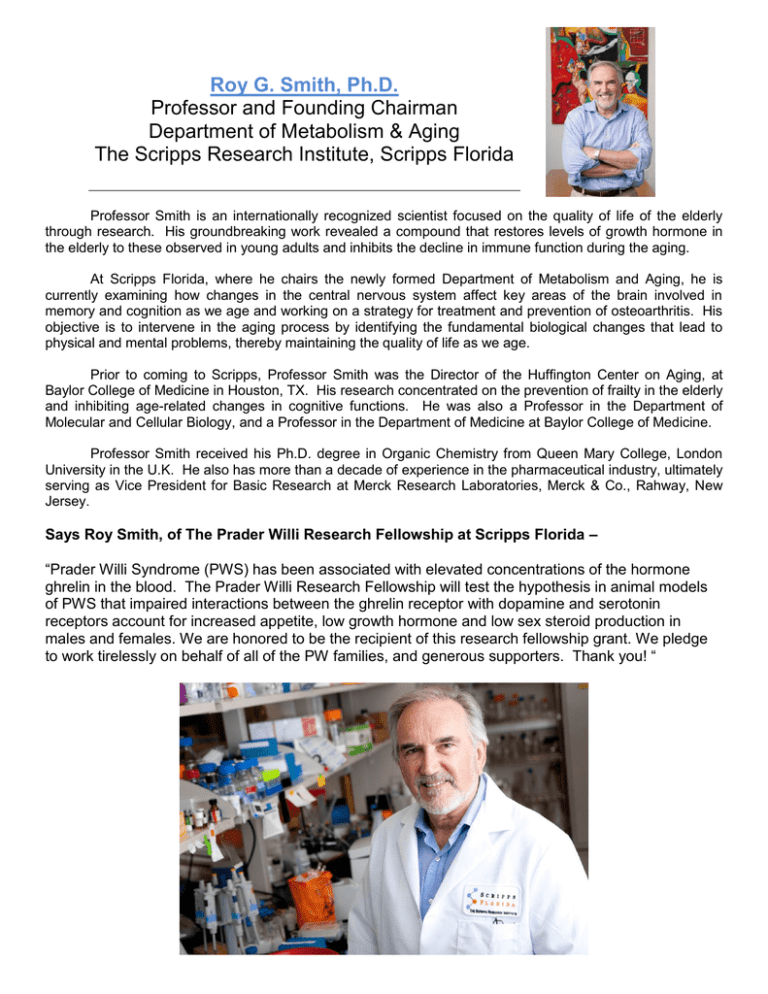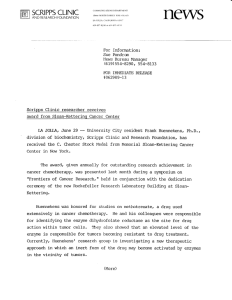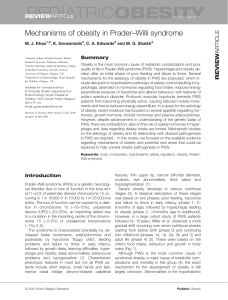Roy G. Smith, Ph.D. Professor and Founding Chairman
advertisement

Roy G. Smith, Ph.D. Professor and Founding Chairman Department of Metabolism & Aging The Scripps Research Institute, Scripps Florida Professor Smith is an internationally recognized scientist focused on the quality of life of the elderly through research. His groundbreaking work revealed a compound that restores levels of growth hormone in the elderly to these observed in young adults and inhibits the decline in immune function during the aging. At Scripps Florida, where he chairs the newly formed Department of Metabolism and Aging, he is currently examining how changes in the central nervous system affect key areas of the brain involved in memory and cognition as we age and working on a strategy for treatment and prevention of osteoarthritis. His objective is to intervene in the aging process by identifying the fundamental biological changes that lead to physical and mental problems, thereby maintaining the quality of life as we age. Prior to coming to Scripps, Professor Smith was the Director of the Huffington Center on Aging, at Baylor College of Medicine in Houston, TX. His research concentrated on the prevention of frailty in the elderly and inhibiting age-related changes in cognitive functions. He was also a Professor in the Department of Molecular and Cellular Biology, and a Professor in the Department of Medicine at Baylor College of Medicine. Professor Smith received his Ph.D. degree in Organic Chemistry from Queen Mary College, London University in the U.K. He also has more than a decade of experience in the pharmaceutical industry, ultimately serving as Vice President for Basic Research at Merck Research Laboratories, Merck & Co., Rahway, New Jersey. Says Roy Smith, of The Prader Willi Research Fellowship at Scripps Florida – “Prader Willi Syndrome (PWS) has been associated with elevated concentrations of the hormone ghrelin in the blood. The Prader Willi Research Fellowship will test the hypothesis in animal models of PWS that impaired interactions between the ghrelin receptor with dopamine and serotonin receptors account for increased appetite, low growth hormone and low sex steroid production in males and females. We are honored to be the recipient of this research fellowship grant. We pledge to work tirelessly on behalf of all of the PW families, and generous supporters. Thank you! “



